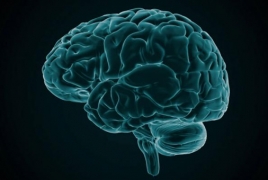"Face blindness" may involve a failed brain network November 20, 2019 - 16:10 AMT PanARMENIAN.Net - People with prosopagnosia, or "face blindness", have trouble recognizing faces—even those of close friends and family members. It often causes serious social problems, although some people can compensate by using clothing and other cues. Face blindness often becomes apparent in early childhood, but people occasionally acquire it from a brain injury later in life. A new study of people who became face-blind after a stroke, led by Alexander Cohen, MD, Ph.D., of Boston Children's Hospital, provides clues to what goes wrong in the brain. The findings, published in the journal Brain, indicate that no one single area is always perturbed in face blindness. Instead, face blindness involves an entire network, where a malfunction in communication among the various components can bring the system down. This potentially opens the door for improving face recognition by tweaking the function of different parts of the network. Cohen, first author on the paper, believes the findings could also apply to other people with poor face-processing abilities, specifically individuals with autism, who often score very poorly on tests of face processing. Cohen began by speculating that autism could be approached not just as a holistic entity, but by studying its individual symptoms. Those symptoms have a better chance of being localized to specific parts of the brain and could perhaps be turned into biomarkers and treatment targets. That's where face blindness comes in. It's easy to test for and common in autism, seen in children as young as 2. "In eye gaze studies, autistic kids often don't look at the faces in a video," Cohen says "Or they just look at one part, often the mouth, maybe because it's giving more information about speech. Many find eye contact uncomfortable." Data suggest that the worse people with autism are at face processing, the worse their social communication. "The question is, are face processing deficits causal in autism, or do they result from autism?" says Cohen. "That's where looking at face processing in people with stroke really helps. They have specific lesions in the brain, so there is more of a cause-and-effect relationship. If you find an abnormality involving the same brain areas in a child with autism, there's a much higher chance that it may be driving the face processing deficit." Authorities said a total of 192 Azerbaijani troops were killed and 511 were wounded during Azerbaijan’s offensive. In 2023, the Azerbaijani government will increase the country’s defense budget by more than 1.1 billion manats ($650 million). The bill, published on Monday, is designed to "eliminate the shortcomings of an unreasonably broad interpretation of the key concept of "compatriot". The earthquake caused a temporary blackout, damaged many buildings and closed a number of rural roads. Partner news |